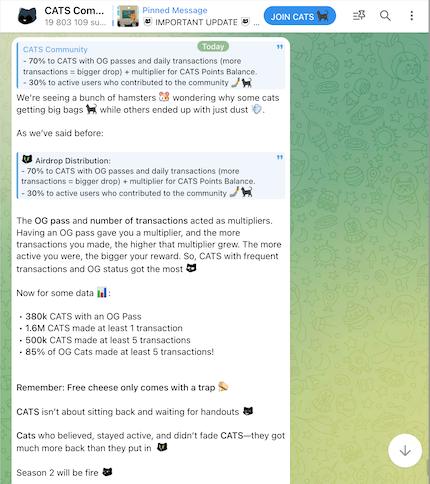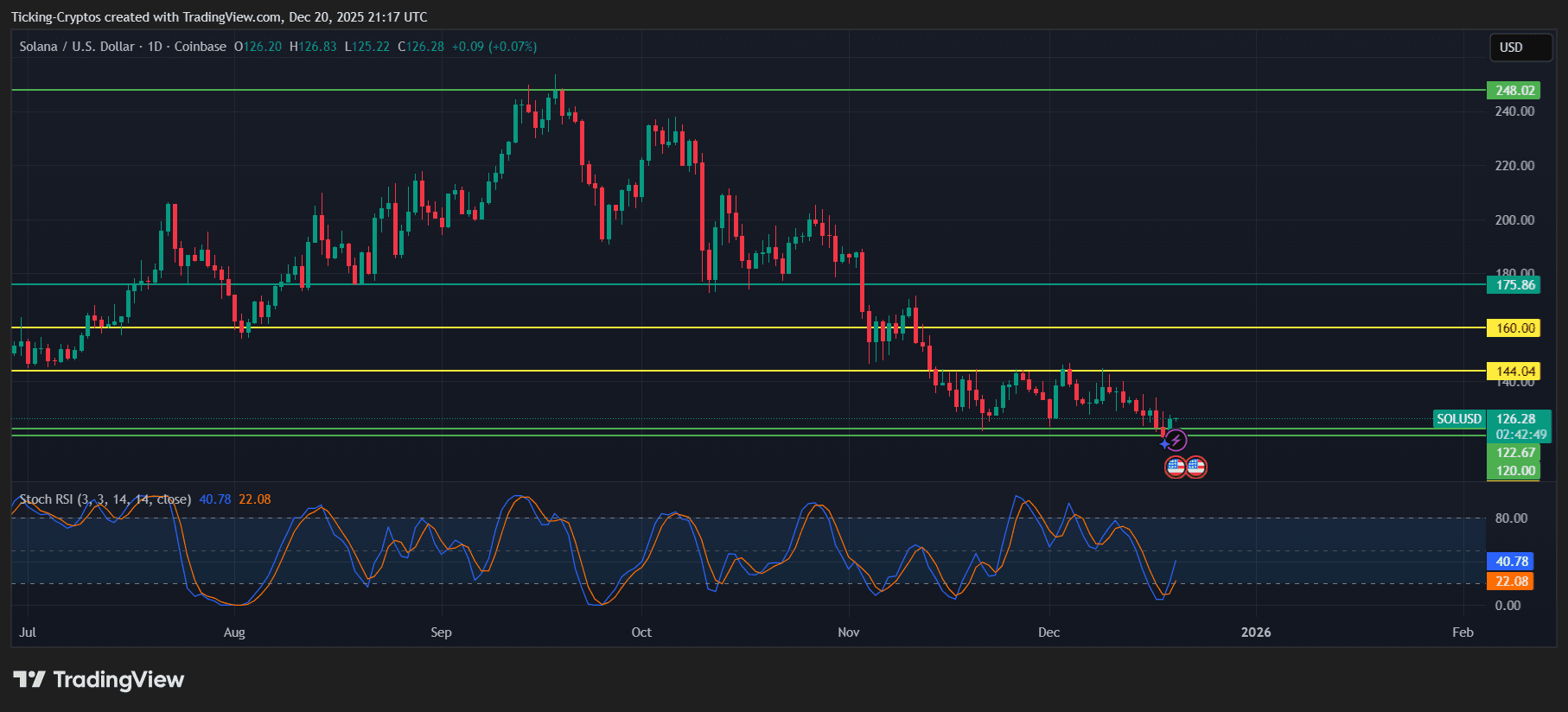CATS on why some cats getting big bags while others ended up with just dust
We’re seeing a bunch of hamsters wondering why some cats getting big bags while others ended up with just dust.
As we’ve said before:
Airdrop Distribution:
- 70% to CATS with OG passes and daily transactions (more transactions = bigger drop) + multiplier for CATS Points Balance.
- 30% to active users who contributed to the community
The OG pass and number of transactions acted as multipliers. Having an OG pass gave you a multiplier, and the more transactions you made, the higher that multiplier grew. The more active you were, the bigger your reward. So, CATS with frequent transactions and OG status got the most
Now for some data :
• 380k CATS with an OG Pass
• 1.6M CATS made at least 1 transaction
• 500k CATS made at least 5 transactions
• 85% of OG Cats made at least 5 transactions!
Remember: Free cheese only comes with a trap
CATS isn’t about sitting back and waiting for handouts
Cats who believed, stayed active, and didn’t fade CATS—they got much more back than they put in
Season 2 will be fire
P.S. We know that a small group of CATS still has issues with uncounted OG passes or transactions, even though most of the problems were handled and solved before the airdrop. We want to ensure that no cat receives fewer CATS than they deserve
Soon, we’ll be opening a CATS hotline for airdrop/balance issues to make sure every cat is taken care of

Disclaimer: The content of this article solely reflects the author's opinion and does not represent the platform in any capacity. This article is not intended to serve as a reference for making investment decisions.
You may also like
Solana Price Depends On Existing SOL Holders, Here’s Why
Crypto Price Today: Bitcoin, Ethereum, Dogecoin, and Solana at Key Levels

Banks Need XRP To Be Pricier—Here’s Why A Finance Expert Says So

Midnight Blockchain Draws Attention with Record Trading Volume and Strategic Partnerships